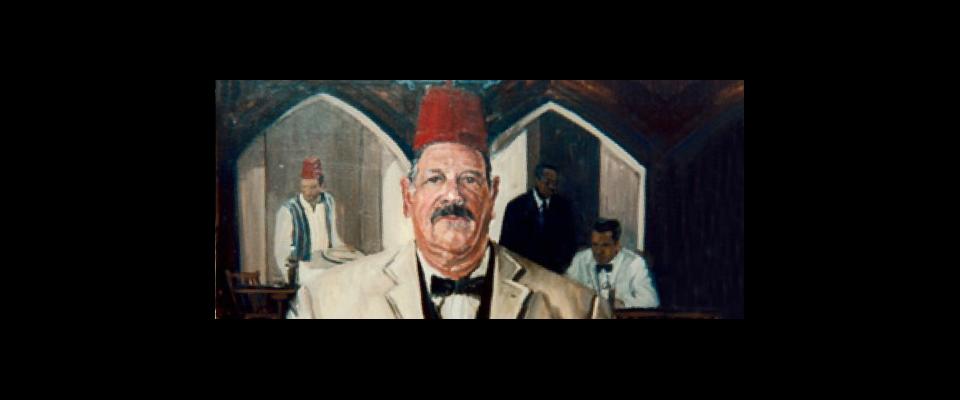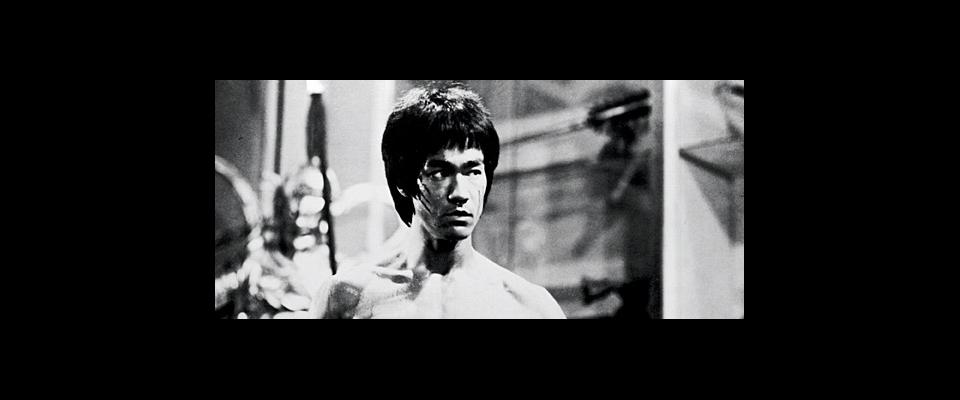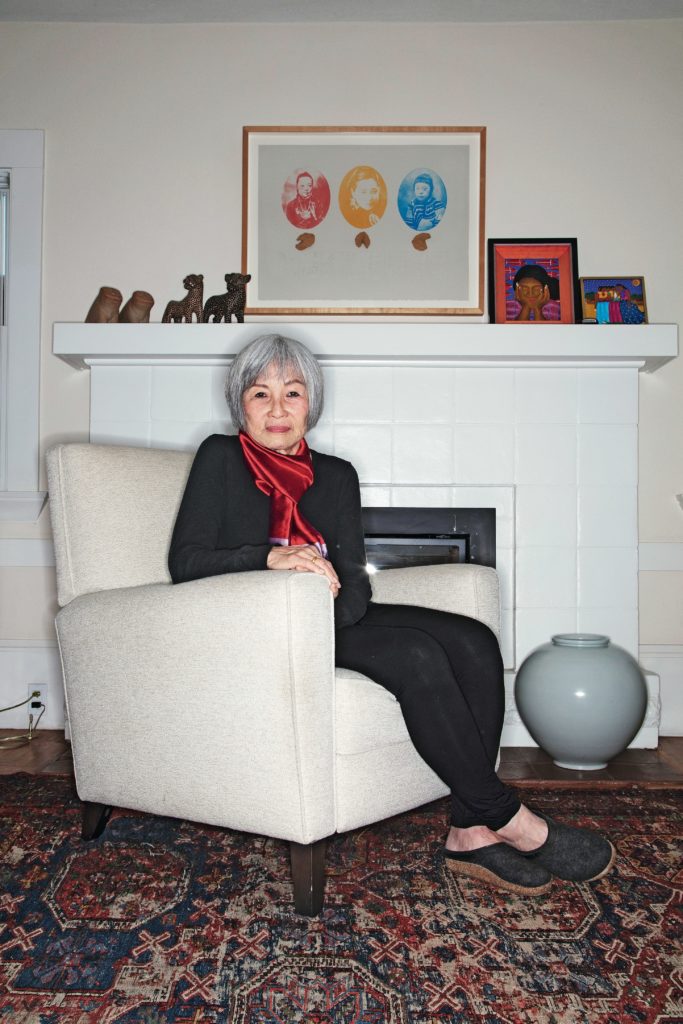Later this month, Young Jean Lee will make history as the first Asian-American woman to have a play staged on Broadway. Yet, what would presumably be a cause for celebration actually makes for a confusing time: the Korean-American playwright will be achieving this feat with her play, Straight White Men.
There’s no catch in the title. Straight White Men, which Lee originally wrote and directed in 2014, is indeed populated by a cast of four heterosexual white men (save for a slight experimental twist involving two trans actors). And notably, the show, which opens June 29 in Broadway’s Second Stage Theater and is directed by Anna D. Shapiro, isn’t some assault on white identity as one might reasonably expect. Instead it focuses on the members of a tight-knit family—three brothers and their father—who are, in fact, acutely aware of their white advantage.
As progressive liberals, they are so attuned to their social advantage that it becomes a part of the show’s primary question, What’s wrong with Matt? Back home for Christmas, the family notices that the eldest brother, a brilliant Harvard grad, is battling his own existential crisis—what’s seen as a “privileged” problem that underlies many straight-white-male-centered works of art.
“I start every play with a question of, ‘What’s the last play in the world that I would ever want to write?’” Lee says. “And then I would force myself to write that play.”
While forward-thinking, the premise may be controversial even among its supporters. The very crowds expected to champion Lee’s Broadway achievement will likely be in outrage that history is being made with a play starring straight white guys.
“I’m bracing myself for that,” Lee says by phone from Brooklyn, where she’s preparing to enter rehearsals for the show. But Lee, who earned her B.A. in English from UC Berkeley, is no stranger to situations where backlash appears ready at the jump.
Her works often tread into the thorny territory of identity politics, such as “Untitled Feminist Show” (2011), a nearly wordless production with a fully nude six-person cast, and “The Shipment” (2009), a treatment of black identity that interacts with the audience in surprising, provocative ways. That boldness has been met with critical acclaim. Over the last decade, Lee has come to be widely heralded as the singular torchbearer of experimental theatre; Charles Isherwood of the New York Times deemed her “hands down, the most adventurous downtown playwright of her generation.”
In fact, most of Lee’s works would be far too unwieldy, “too crazy” to make it on Broadway and “would close after a day,” she says. But Straight White Men, also running at the Marin Theatre Company through July 8, is a departure from her experimentalist tendencies. In its conception, she turned to naturalism, a theatrical style that emphasizes a more realistic flow of dialogue and events; and she also adopted a conventional three-act structure—what she calls the “straight white male of theatrical forms”—as a nod to white identity politics.
No matter the form it takes, there is a level of fearlessness, or fearfulness, built into Lee’s process.
“I start every play with a question of, ‘What’s the last play in the world that I would ever want to write?’ And then I would force myself to write that play,” she says.
This time around, the answer was prompted with the thought, “What would it be like to wake up as a straight white man?” The hypothetical threw her for a loop and continues to complicate her feelings about the so-called boundary-breaking feat of the play’s Broadway run.

“So much of the reason why people are happy for me when I’m successful is because I’m like a groundbreaker as an Asian-American female,” Lee says. “And if I were suddenly a white guy, it would no longer be exciting that I’m getting a play on Broadway; I’d just be another person, another capitalist out there pursuing their own ambitions.”
This isn’t to say that Lee created a work out of concern for some perceived plight of straight white males. Nor does she feel that white men are in any danger of disadvantage. “I just think, ideologically, there’s a problem with having my only goal as a woman of color to be to replace straight white men within the same exploitative structure,” Lee says.
Instead, the men of privilege in Lee’s play are forced to examine the dynamic between their identity and the world as straight white males—and how to exist in a society where you cannot, as Matt says, “erase the problem of your own existence.”
“What is your responsibility as a human being toward the world if you actually want to live by your principles of social justice?” Lee asks. “Another question that’s raised by the play is: What counts as an acceptable way to live within a capitalist framework?”
Over the course of the play, the audience, and not only the white male performers, must confront these questions and the expectations they raise. While serving as a playwright-in-residence at Brown University, Lee created the character of Matt—a white man who moves back home and takes a lowly job making copies for a nonprofit—with the help of a group of diverse, non-white undergraduates. “He was built out of what people said they wanted from straight white men,” Lee says. That is, per their advice, Matt’s character was made to withdraw from society and stop profiting off his privilege. “And then they all hated him because he was a failure. He was a loser.”
“[Straight white male identity] used to just be the default,” says director Morgan Gould. “And what a fascinating thing to witness men who have never had to consider their identity starting to have to consider it.”
Morgan Gould, who at the time was the Associate Artistic Director at Lee’s theater company and is now directing the upcoming show at the Marin Theatre Company, remembers this contradiction as perhaps the crucial pulse of the play. “What do you guys want here from this guy?” she recalls asking the undergrads at Brown. “And the answer is, they didn’t know, which is okay. It’s not their job to know. But I think we think we know.”
Lee never intends to present her own answer, leaving us to wrestle with the question. “She uses this example a lot. If you’re standing in a circular room with a bunch of doors to exit through, and the question she wants the audience to struggle with is like a monster living in the room with you, what she wants to do is shut every single door,” Gould says. You’re forced to sit with the monster, one that is often prickly and unfamiliar and that you might not yet have the tools to handle.
The next play Lee is working on, which tackles the politics of class, has been difficult to figure out, she says, because America still lacks the vocabulary to articulate these class issues. Similarly, when Lee first began tinkering with Straight White Men some five years ago, the concept of straight white male identity was just developing. “It used to just be the default,” Gould says. “And what a fascinating thing to witness men who have never had to consider their identity starting to have to consider it.”
When she premiered the play in 2014, Lee remembers audiences being unsure of how process it. Now, as Straight White Men comes to Broadway years after its first staging, she says that the world has adapted to understanding it, rather than the other way around.
In 2018, the production feels especially relevant in its interrogations, as white identity politics are set aflame and characterized as toxic and problematic. Yet, again, Lee is no apologist for our current power structures. In the Broadway history she will soon make, she sees the sad reality that has made her achievement possible.
“Frankly, it’s depressing,” Lee says with a wry laugh. “It makes me feel bad. It makes me realize that people like me have been excluded for such a long time. It doesn’t feel right that I should be the first one.”
If Lee’s career is any indication, she has often been ahead of her time, waiting for everyone else to catch up. Eventually, hopefully, the larger theater world will follow her lead. Until then, they can expect to see her again soon as she stages her second work on Broadway and confronts audiences with another monster.
Brandon Yu is a freelance arts writer and books columnist at the San Francisco Chronicle.





















